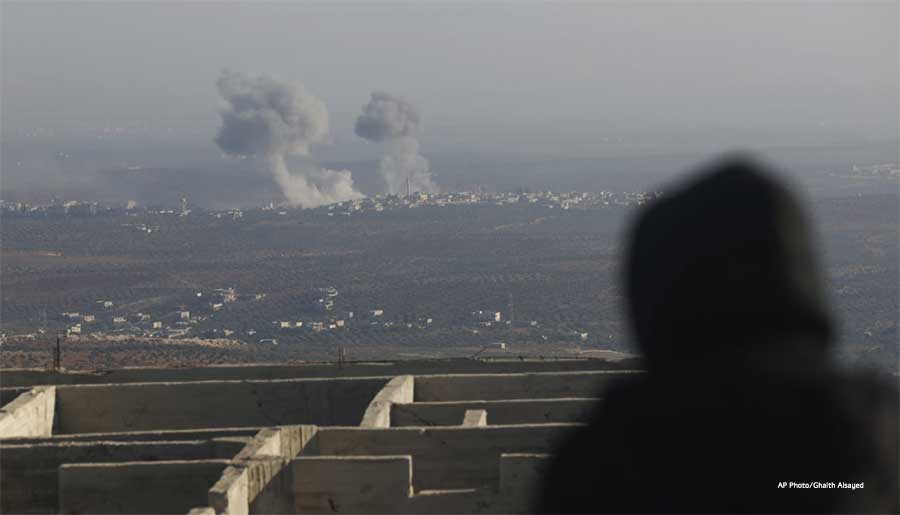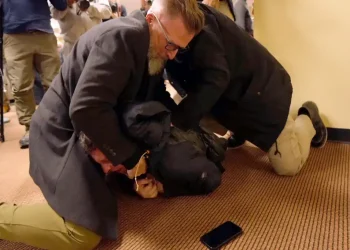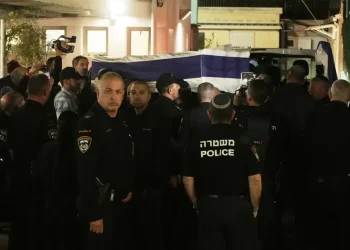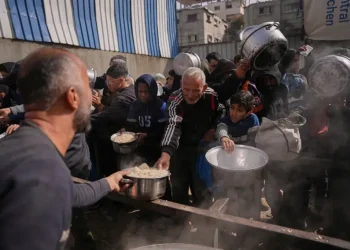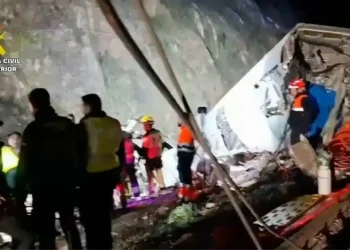Syrian Insurgents Launch Large-Scale Offensive Against Government Forces in Northwest Syria
Syrian insurgent groups launched a significant attack on government-controlled areas in the country’s northwest, seizing territory in the region. The government and its allies responded with airstrikes and artillery fire to counter the insurgents’ advances, according to opposition groups.
The violence has displaced thousands of families and forced humanitarian organizations to pause some services. Volunteers from the Syrian Civil Defense (the White Helmets) reported that at least 18 people, including three children and two women, were killed in two villages in western Aleppo following airstrikes. The Syrian Observatory for Human Rights, a prominent war monitor, stated that the airstrikes were carried out by Russian warplanes.
Syria’s armed forces said the offensive was led by Hayat Tahrir al-Sham (HTS), a group that controls much of northwest Syria. The government claims that the offensive violates a 2019 de-escalation agreement between Turkey, which supports opposition factions, and Russia and Iran, which back the Syrian government. This agreement had effectively frozen the frontlines and prevented government forces from advancing into Idlib, the last major opposition-held area.
“The situation will return to how it was,” Syria’s army declared in a statement, emphasizing their ongoing efforts to confront what they call “terrorist organizations” with support from allied forces.
The insurgent attack began early Wednesday. Opposition factions claimed to have captured more than 15 villages in northwest Aleppo, along with a military base and weapons. They also reported taking several government soldiers hostage. On Thursday, the offensive expanded into Idlib province, where government forces control key locations, including a strategic highway and a town previously held by insurgents. These claims have not been independently verified.
Opposition fighters stated that their goal was to create conditions for the return of thousands of displaced people who fled government airstrikes in recent weeks.
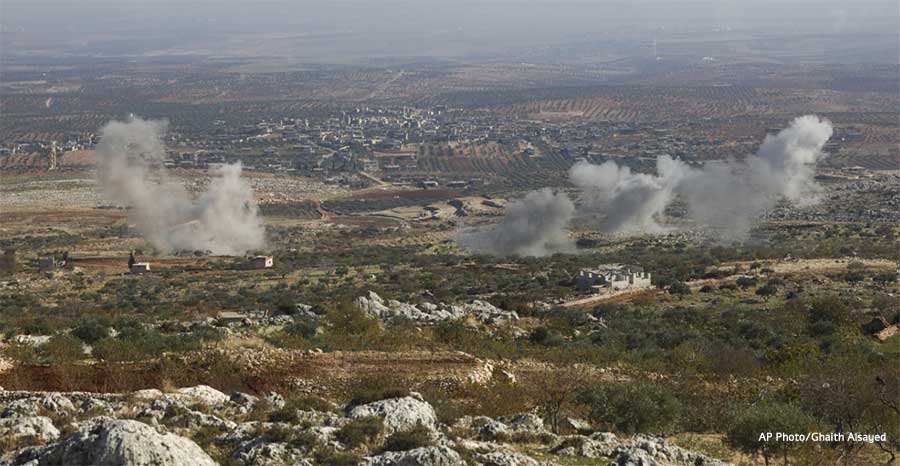
The offensive follows weeks of rising tensions, with activists saying that government and Russian forces have intensified their bombardment of the opposition’s last stronghold. The International Rescue Committee reported that at least 7,000 families have been displaced by the recent violence, and several schools and health facilities have suspended operations, including those run by the IRC.
The offensive comes at a time when Iran-linked groups, which have supported the Syrian government since 2015, are focused on their own struggles at home. Israel and Hezbollah, a key member of the Iran-backed alliance, have been engaged in an escalating conflict since September. A ceasefire was announced on the same day the opposition launched their offensive. Israel has also increased attacks on Hezbollah and Iran-linked targets in Syria in recent months.
HTS, formerly known as the Nusra Front, was once affiliated with al-Qaeda but distanced itself from the group in recent years.
Russia and Iran have backed Syrian government forces since the outbreak of the war in 2011. Meanwhile, Turkey has supported various opposition groups and established a military presence in parts of northwest Syria. The United States has focused its support on Kurdish forces fighting the Islamic State in the eastern part of the country.
Turkey said Thursday it was closely monitoring the ongoing offensive in northern Syria. Turkish defense officials confirmed that measures have been taken to protect Turkish troops in the region.
Turkish security officials explained that the initial attack by the opposition was limited to Aleppo, where Syrian government forces began retreating. The offensive grew as government forces pulled back. The operation is believed to have been planned for months to drive government forces and allied militias out of the area to protect civilians. Turkey had previously attempted to prevent such operations to avoid further escalating tensions, particularly in light of the ongoing conflict between Israel and Hezbollah.
The Turkish officials added that the ultimate goal of the offensive was to restore the boundaries of the de-escalation zone established by the 2019 agreement.
This article was rewritten by JournosNews.com based on verified reporting from trusted sources. The content has been independently reviewed, fact-checked, and edited for accuracy, neutrality, tone, and global readability in accordance with Google News and AdSense standards.
All opinions, quotes, or statements from contributors, experts, or sourced organizations do not necessarily reflect the views of JournosNews.com. JournosNews.com maintains full editorial independence from any external funders, sponsors, or organizations.
Stay informed with JournosNews.com — your trusted source for verified global reporting and in-depth analysis. Follow us on Google News, BlueSky, and X for real-time updates.
